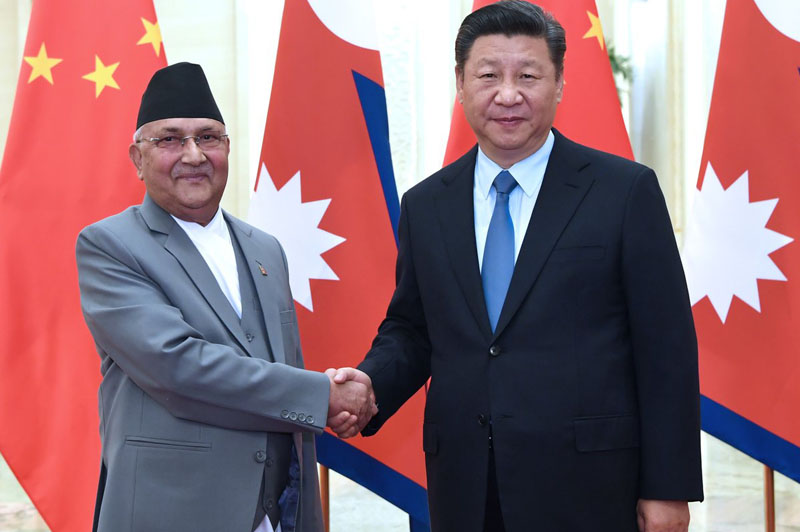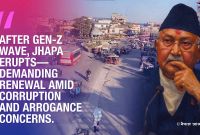Why Does the Prime Minister's Party Still Favor the Chinese BRI Debt Path?

Nepal's coalition government, composed of the Congress and UML (Communist Party of Nepal - Unified Marxist Leninist), is divided over the issue of Chinese Belt and Road Initiative (BRI) debt assistance. While Congress has voiced opposition to accepting BRI loans, Prime Minister Oli's UML party has argued that it is premature to form a definitive stance on the matter.
Congress's Stance
The Nepali Congress, in a recent party meeting, decided against accepting BRI assistance in the form of loans. Congress spokesperson Prakash Sharan Mahat explained, "Taking loans at market rates, with contractors and materials all from the same country, and repaying principal and interest in a short period, does not benefit Nepal. We should only take loans for extremely necessary projects, similar to how the Asian Development Bank or World Bank provides concessional loans at less than one percent interest, repayable over a long period."
UML's Perspective
In contrast, UML's Foreign Affairs Department Chief Rajan Bhattarai stated, "We are currently discussing the implementation of the BRI. Once discussions on specific projects begin, we will determine the loan structure based on our priorities and the future benefits of those projects." According to Bhattarai, Nepal's primary preference is for grants, but the option of concessional loans should remain open if grants are not available. "Nepal has previously taken concessional loans for essential projects with good returns," he added.
BRI and Government Stability
This divergence in opinion on the BRI could potentially impact the stability of the coalition government. While Bhattarai believes that rational debate can resolve these differences, the issue remains a point of contention. Chinese scholar Gao Liang from Sichuan University noted, "Both Congress and UML supporting BRI is a positive aspect for Nepal's economic development and independence. Over time, more agreements on BRI will form, and differences will narrow."
The Need for Implementation Agreement
Bhattarai emphasized the need for an implementation agreement for the BRI, as Nepal signed an MoU for the initiative back in 2017. During Prime Minister Pushpa Kamal Dahal's visit to China last year, Beijing expressed its desire to sign an implementation plan. However, internal disagreements in Nepal have prevented this from happening. "We need to agree on implementing the BRI first. Only then can we identify projects and negotiate bilateral agreements," Bhattarai said.
Conclusion
Prime Minister Oli's party maintains its stance on pursuing the BRI debt path, while Congress prioritizes grants. This difference in approach towards BRI assistance poses a challenge to the long-term stability of the coalition government. Nevertheless, both parties continue to seek a rational solution through dialogue and negotiations.
China In Nepal



![From Kathmandu to the World: How Excel Students Are Winning Big [Admission Open]](https://nepalaaja.com/img/70194/medium/excel-college-info-eng-nep-2342.jpg)
